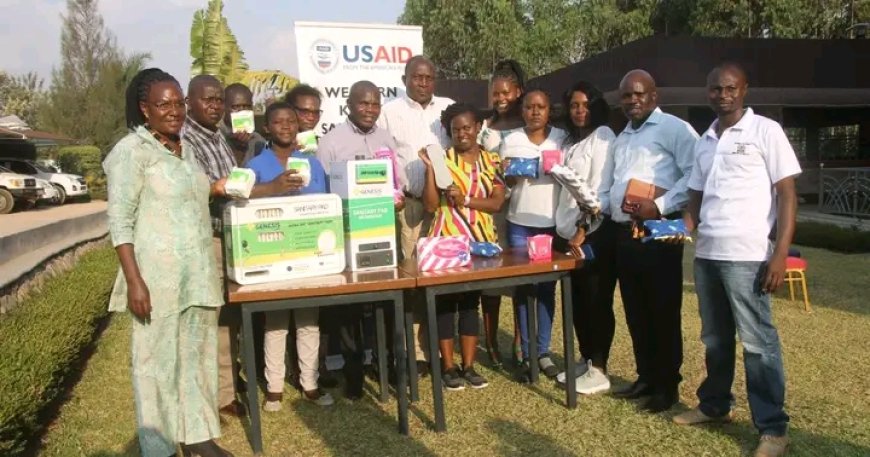Menstrual Health Management stakeholders meet to deliberate on menstrual hygiene

Migori
Saturday, July 29, 2023,
KNA BY Geoffrey Makokha
Menstrual Health Management stakeholders in Migori have met to deliberate on menstrual hygiene affecting reproductive women in the county.
The workshop that brought together health entrepreneurs and stakeholders aimed to address the three key approaches of Menstrual Health (MHM) Management under the Western Sanitation Programme (WSP) of demystifying the myths of menstrual, accessibility of sanitary towels and menstrual waste disposal.
The Executive Director of Blue Cross NGO Erick Okoth said that menstrual health management has been clouded with a lot of secrecy and taboos in African communities.
Okoth said that the workshop deliberated on how best to break the menstrual silence, product accessibility and disposal of menstrual towels to improve the menstrual hygiene affecting reproductive women in the county.
He noted that 65 percent of Kenyan women of reproductive age have no access to sanitary pads and other MHM products, robbing women of their menstrual dignity and hygiene.
“We the health stakeholders in reproductive and menstrual health want to address how rural reproductive women can be able to access the MHM product to restore dignity, improve menstrual hygiene as well as have proper menstrual waste disposal management,” noted Okoth.
The official stressed that by bringing all stakeholders together to link up the rural community with market enterprises, a lot of the reproductive women will be able to access MHM products in restoring their self-respect and esteem.
“It saddens to hear that women in some parts of Migori travel as far as five kilometers just to access the MHM products while others are still using old racks for menstrual in an undignified manner is unacceptable,” said Okoth.
The Director of the Society Empowerment Project NGO (SEP) Festus Juma said that the reason they were promoting usable sanitary towels was the cost-effectiveness and longevity of the pads usage.
The usable pads could be used for at least two years making economic sense as well as aiding in environmental conservation because of the zero disposal.
Juma noted that the majority of rural women of reproductive age were not able to easily access MHM products because of poverty levels making usable pads an economic product.
Chief Executive Officer Genesis Care NGO Catherine Wanjoya explained that the sanitary pad dispenser and menstrual incinerators would offer end-to-end menstrual hygiene solutions to less privileged and poor rural reproductive women.
She said that the introduction of the sanitary dispenser would enable reproductive women to buy one pad instead of the whole pad packet that the majority of women cannot afford.
On the other hand, the menstrual incinerators technology innovation will help to address the used pad disposal menace that has become a major challenge in the country.
Wanjoya noted that properly disposing of menstrual products, it would help to protect the environment by solving the blockage and clogging of water pipes, sewers, and drainage channels.
The machine disposal is able to incinerate the used pad into one gram of sterile ash in order to protect against the environmental effects brought about by improper pad waste management.
In addition, Migori Public Health Officer Naomi Oluoch emphasised that the three approaches to menstrual hygiene management of breaking the silence, product accessibility, and proper disposal would put the county in the right direction on menstrual and reproductive health care.
She pointed out that the Public Health Department through the community health strategic units would increase the accessibility of MHM products thereby helping reproductive women access the menstrual towels as well as ensure proper waste menstrual disposal management.
Courtesy ; K. N. A
What's Your Reaction?



































































































































































































































































































